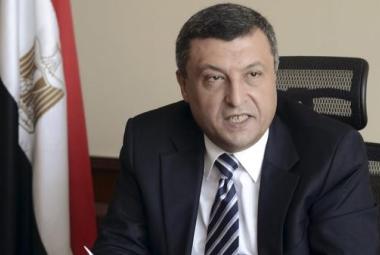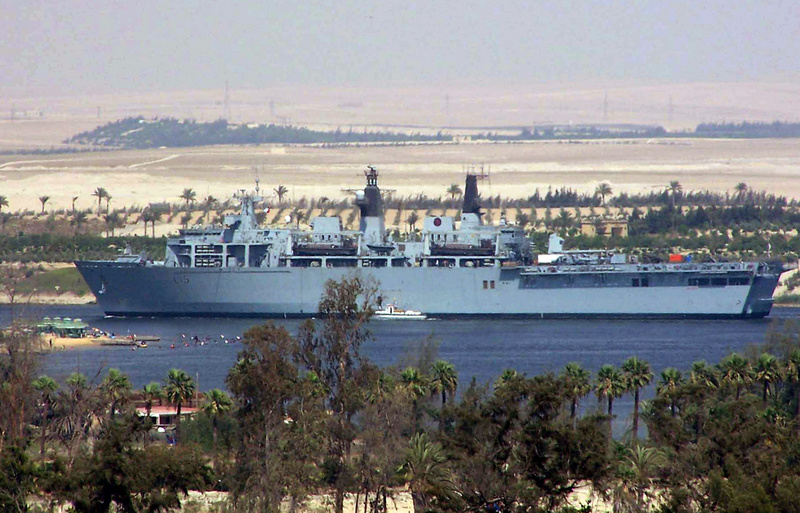Since the announcement of the new Suez Canal Area Development project in 2014 by President Abdel Fattah Al-Sisi, the project has been propagated as the ultimate national project, under which six of Egypt’s port will be transformed into industrial hubs for the world.
Despite converting the area into an economic zone with a special nature, the 22.5% income tax set by the Ministry of Finance remains a major concern for maritime transportation analysts.
“The 22.5% income tax is a discouraging factor to any investor and is unsuitable for ports and free zones,” former minister advisor for maritime transportation Ahmed Sultan said and that such ports are in need of a competitive advantage.
Economic zones of a special nature should be subject to the same taxes applied nationwide, he added.
In November, Al-Sisi issued a presidential decree announcing that the Suez Canal Economic Zone (SCZone) will be an independent economic zone of a special nature, according to the law governing such zones.
Former minister of state for administrative development Ahmed Darwish, who served in the Egyptian cabinet between 2004 and 2011, was appointed to head the new zone for the next three years.
The law, which was amended in June, was said to ensure the zone’s independence from the government, allowing the zone to work with a single-window system, which in turn was expected to cut a lot of red tape in all the investors’ procedures. It was to be separate from all ruling legislations of economic activity in Egypt.
The law also allows the zone to launch a major development company for the area, to own it completely or through cooperation with the private sector, or to allow it to be completely privately owned, to implement infrastructure projects, according to legal advisor Hani Sarie El-Din.
Changing the law
In a conference organised by the US Chamber of Commerce in December, Darwish noted the law is different from other laws that govern other authorities; it is a “flexible” legal framework that allows him to give project approvals without having to refer to the Egyptian cabinet.
Darwish also announced during the conference that he believed the 22.5% income tax set by Minister of Finance Hany Kadry Dimian to be too high. This tax rate will be restudied, noting that reducing it is possible.
“If the studies show that a 22.5% tax is efficient, then I will call to amend the SCZone law through the upcoming parliament,” Darwish had said.
Prior to the recent amendments, when it was first applied in 2003, the SCZone law stipulated that the income tax rate was 10%. However Dimian requested a higher rate in order to reduce the budget deficit.
“The ministry states that even if they pay 10% there, they still pay 18% to their countries,” Darwish said. The ministry said it is better for the remaining percentage to go to in Egypt. He had called for a study to be conducted on the tax rates, “to discover which companies have the 28% taxes applied to them”, since there are no customs in the Suez Canal zone.
“The percentage of tax applied in ports varies as it depends on the nature of industrial activity taking place in the port,” Sultan said.
Transportation and logistics professor, Mostafa Rasheed, said the 22.5% tax is not finalised and has not been applied yet.
Minister of Investment Ashraf Salman however said the government has no intention to decrease the 22.5% income tax applied on investments in the SCZone.
“The government conducted comprehensive studies, comparing the tax value applied in neighbouring economic zones. Only the Moroccan market imposes a lower tax, at 19%,” Salman said and that stabilising the tax ensures justice in the level of taxation for investments inside and outside the economic zone.
SCZone progress
The six ports are East Port Said Port, West Port Said Port, Al-Arish Port, Al-Adabeya Port, Ain Sokhna, and the recently added Al-Toor Port. Each of these six ports has its own master plan.
According to Yehia Zaki, the managing director of Dar Al-Handasa company, which conducted the master plans for the project, the two of the most promising ports are in Port Said and in Ain Sokhna.
The East Port Said project is the starting point for the whole mega project. There are four main industries in the port: engineering industries, automotive industries and automotive components, electronic and home appliances, as well as packaging industries.
The port will also be focused on the trade of containers since it is a promising port for trans-shipment. The container trade and trans-shipment are the focus of the East Port Said Port, Zaki told Daily News Egypt in August.
“[For the first stage] the industrial zone’s space is about 40sqkm and will be developed over various stages and will offer about 400,000 job opportunities within the implementation period [15 years],” Zaki said.
In the Ain Sokhna Port, the industrial zone will rely on medium and heavy industries, such as petrochemicals. It will have a large residential area.
In November, Al-Sisi launched the East Port Said harbour development project. The Armed Forces Engineering Authority will lay out the various stages of implementation, along with details of development projects in the area.
During the speech by General Kamel Al-Wazir, the Chief of Staff of the Armed Forces Engineering Authority and the general supervisor of the new Suez Canal project, about the East Port Said development projects, when he said the project would end in three years, Al-Sisi interrupted, cutting the project’s completion period to two years.
Earlier this month, the General Authority for the SCZone signed a memorandum of understanding (MOU) with an alliance of Spanish companies to develop the industrial area in East Port Said. The companies in the alliance include Grupo Enza, Ferrocarrils de la Generalitat de Catalunya, Cox Energy, and Safex Energy, as well as others.
Nasser Fouad, the spokesman for the authority, told Daily News Egypt: “If we reach a final agreement with the Spanish alliance, we will allocate land to them on usufruct basis for 25 years, which can be increased to 50 years.”
According to a statement issued by the authority Thursday, the alliance will provide consultations in many fields, including energy, water desalination and residential projects.
The SCZone’s head said the alliance’s projects are worth approximately €8bn, to be undertaken over at least five years, according to a statement issued by the authority.
During the same month, Darwish also announced that Russia intends to establish an industrial zone on 2m sqkm in East Port Said. An official statement released by the authority stated that the agreements will be signed for petroleum refinery and a petrochemicals complex.




